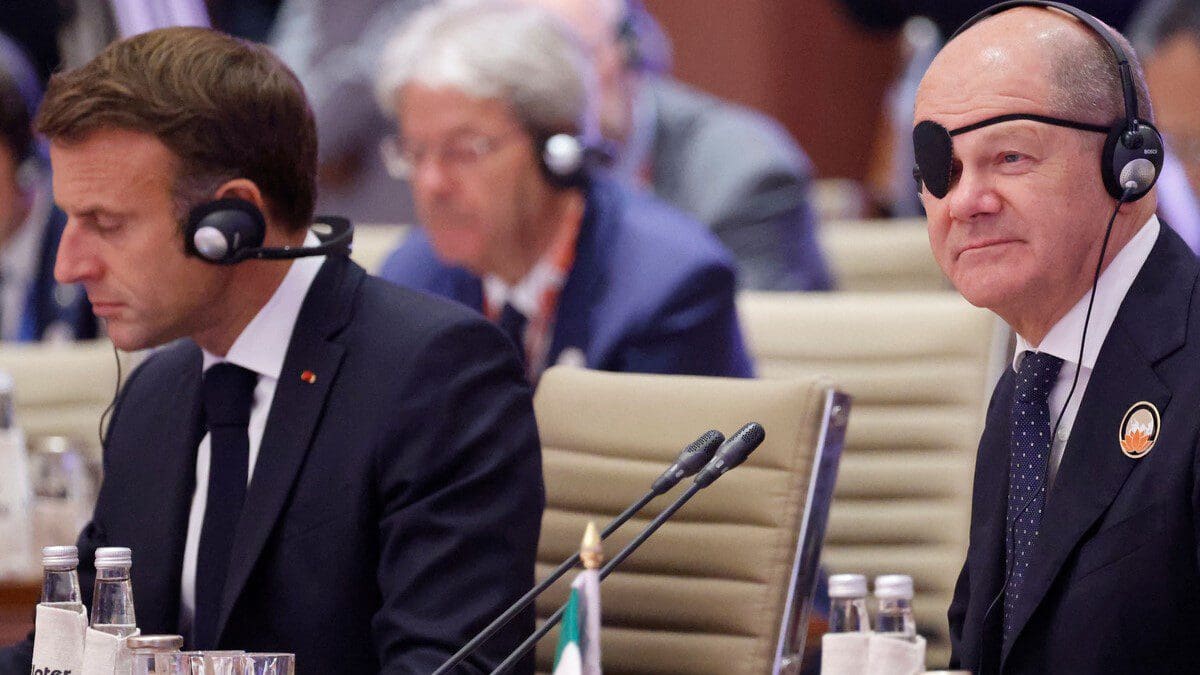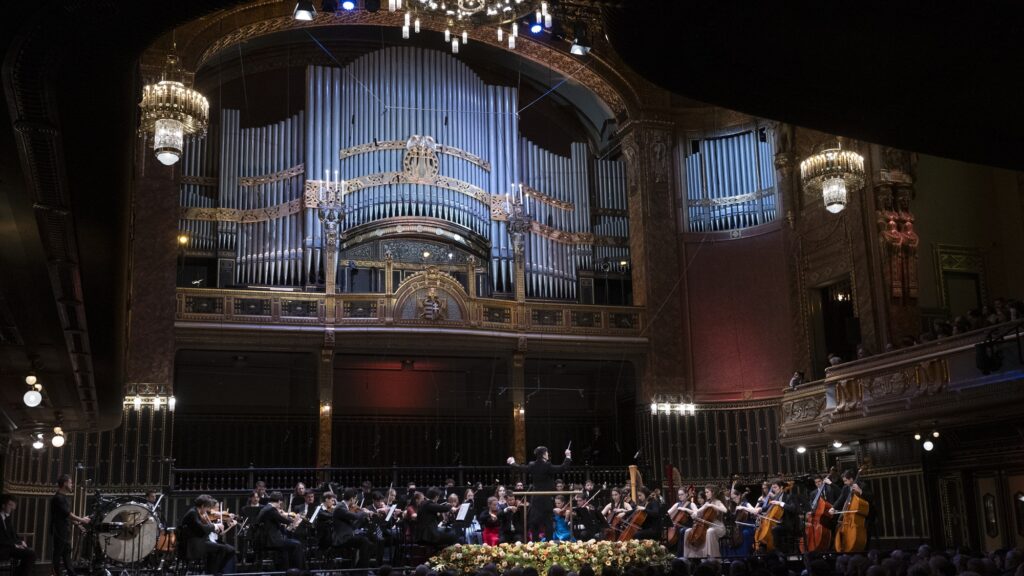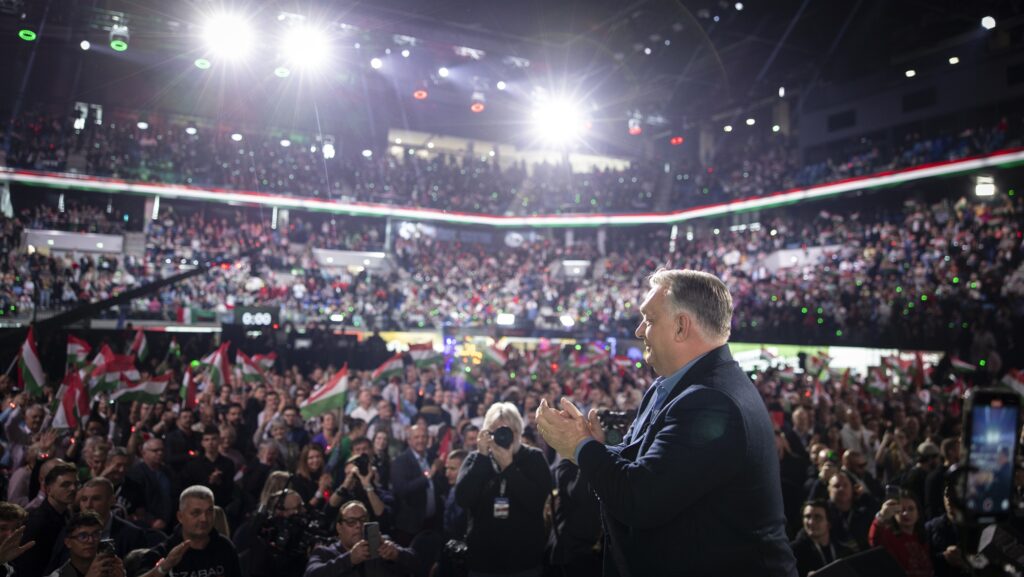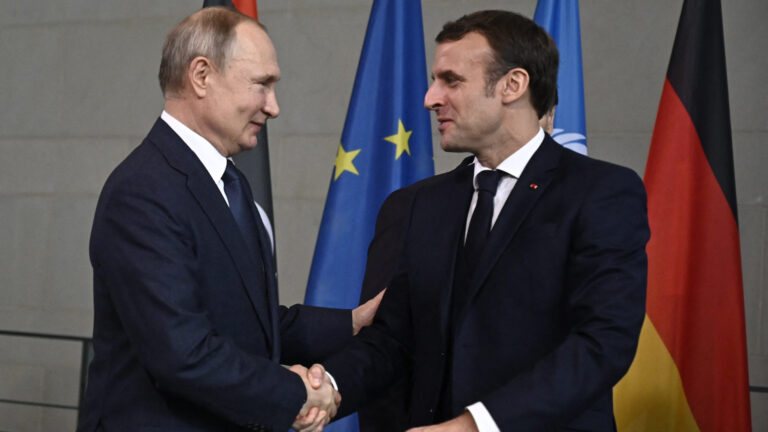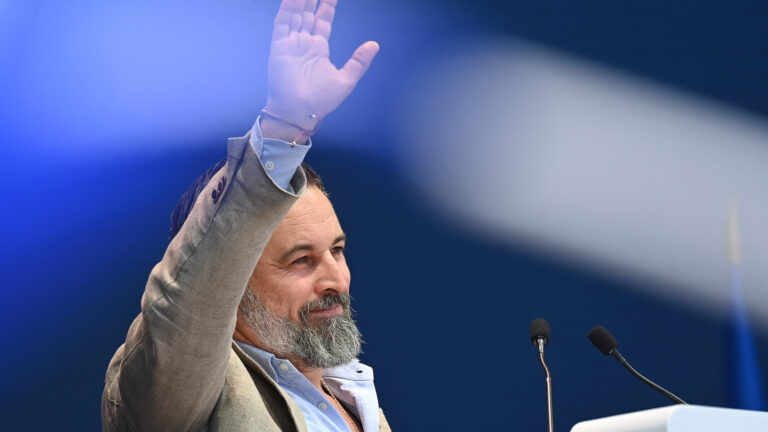It seems that the once fabled Franco–German ‘engine’ of the European integration is showing signs of life again. Years have passed since the positions of Paris and Berlin on the most crucial issues of the European Union were last consonant. The relationship of these core EU nations has in fact been explicitly cold and detached since Germany’s left-wing government, led by Olaf Scholz, took power in late 2021.
But now, the French and the Germans once again appear to be united by the great struggle to reform the EU.
At this point, the whole thing resembles the plot of a mediocre superhero movie: two, otherwise unwilling giants put their differences aside and unite their powers to save the world (or at least the EU) again—but this time it is not some desperate antagonist who they are fighting against, but certain member states with apparently questionable rule of law track records, and the EU’s institutional inability to make swift decisions and to accommodate a plethora of new member states.
Mind you, it is not official—yet. The report of the ‘Franco–German Working Group on EU Institutional Reform’ (the self-described Group of Twelve) that POLITICO obtained before the meeting of the General Affairs Council in mid-September and that Hungarian left-liberal website Telex dubbed the ‘Franco–German EU reform plan’ contains the opinions of its authors only. Yet it still made it to Brussels before the get-together (not to its agenda, though), not least because of the fact that it is quintessentially a proposal of French and German experts, so there is a good chance that the report’s recommendations will often be discussed in the coming months.
The report itself contains surprisingly few new elements compared to Paris and Berlin’s well-known official EU agenda. The objectives of the proposed reforms are threefold: first, increase the EU’s capacity to act; second, strengthen the rule of law and democratic legitimacy; and third, get the EU’s institutions ready for future enlargement.
Fewer Dissenting Voices for More Efficiency
Most Europhiles and Euro-critics (and maybe Eurosceptics, too) would probably agree that today’s EU is unable to react to most challenges and threats it faces in a timely and adequate manner. This, of course, has been learned the hard way: the 2008 financial crisis, mass migration, COVID-19, and the Russo-Ukrainian war have all overstrained the EU to some extent. Naturally, the above-mentioned groups favour very different solutions to these realities—and the Franco–German paper opts for one that some member states will certainly oppose vehemently.
What the Group of Twelve suggests is that
all Council decisions should be adopted by qualified majority voting instead of the unanimity required now,
and the change should happen before the next EU enlargement. In the past couple of years, calls to chuck out the old holy cow of unanimous decision-making have indeed become louder in the EU, especially in Germany. During the 2021 electoral campaign, most mainstream German parties campaigned with the proposal of abolishing Council unanimity, that is, the power of veto that lies in the hand of all heads of member states. Their reason for this was quite simple: vetoes, especially in foreign policy matters, had hindered efficient decision-making (it is, of course, up to the Reader to decide whether ‘efficient decision-making’ is a well-crafted euphemism for ‘seamless implementation of key French or German interests’).
Long before today’s EU, Council unanimity was indeed designed to prevent larger member states from suppressing smaller ones during the decision-making process. However, things have gotten a bit out of hand once most member states realized that their vetoes are not just some sort of sacred ultima ratio should worse come to worst, but rather an efficient blackmailing tool that they can make good use of even in the most obscure questions. It is also true that some member states have started to overuse their veto power—the Hungarian government’s latest reluctance to approve a merely symbolic common statement condemning the Azerbaijani aggression in Nagorno-Karabakh is a shining example of this.
In a rather smart move, the Group of Twelve draws on the indeed lengthy process of EU enlargement when pleading for less unanimity. After all, most member states back the aspiration of Moldova, Ukraine, and most West Balkan countries to join the EU, so who would not want to make it a bit easier for them to get past the bureaucratic hurdles by desisting from unanimity in this matter (and, of course, a few others)? The report lists the EU’s Common Foreign and Security Policy, enlargement, rule of law and fiscal and tax policy as the only policy areas where unanimous voting should be upheld in the future, albeit not in all cases.
For a More Hierarchical Commission
The Group of Twelve seeks to reform the European Commission, too. Currently, all member states appoint one commissioner to the body that is often, although falsely, credited as the government of the EU. However, a body of 27 commissioners on equal terms can be quite tricky to manage, moreover, there tend to be fewer key policy areas to attend to. Therefore, the Franco-German paper revives the idea of fewer commissioners, which was already considered—and discarded—after the Treaty of Lisbon came into effect.
Alternatively, the experts recommend the establishment of a hierarchical Commission of 27 commissioners. This way all member states would be represented in the college, however, commissioners would be assigned to groups of two or so by portfolios. Each team would have a ‘lead commissioner’ and one or perhaps more subordinates, who optionally would have fewer rights in the college than their bosses—a proposal of the group would even deprive them of their right to vote. The calculation behind this is clear: the fewer actors take place in the decision making, the faster it all goes. It is unclear, however,
if any member state would embrace the idea that could potentially render its representation in the Commission virtually symbolic.
More Power to the European Parliament
It is clear that, in the group’s view, the primary body for member state (and electorate) representation is and should be the European Parliament (EP). Currently, the EP as an institution is significantly less powerful than the Commission and the Council. Whether that is right or wrong is, of course, up to debate—the author himself believes that today’s EP is more of a political freak show than a serious entity and its position in the EU’s institutional power ranking should definitely reflect that. Regardless, this is certainly not the first plea to increase its powers.
The Group of Twelve suggests that the number of MEPs should never exceed the limit of 751 or fewer, even if West Balkan countries or Ukraine join the EU. Of course, this would then require a new seat allocation system to reduce demographic distortions. In this respect, the paper embraces the EP’s ‘Cambridge Compromise’ formula, which has already been presented.
The real leap forward in the European Parliament’s struggle for more power would come from the generalization of qualified majority voting in the Council that we have already discussed. The Group of Twelves argues that, apart from the Common Security and Foreign Policy, the Council should always seek the EP’s approval of all decisions so as to ensure ‘appropriate democratic legitimacy’. It might be worth mentioning that this is not a new idea: it is otherwise known as co-decision or the ordinary legislative procedure and has been with the EU since 1992. However, some key policy areas have been excluded from this procedure, very much to the dislike of some heavy-duty Europhile MEPs.
Such a shift in the balance of power might indeed give more democratic legitimacy to the European Union’s decisions in the long run, but it is questionable in what direction it would take European integration itself. If the co-decision procedure is extended to more policy fields, it will increase the EP’s influence, which will logically attract more politicians to the institution who would be labelled as ‘federalists’ on the Hungarian right, that is, those who see ‘more Europe’ as the solution to most of the EU’s problems and who would presumably take away more competences from the member states.
The ‘Rule of Law’ Hammer
This is far from being the only reason why the Franco–German proposal could have very negative consequences for the current Hungarian government. The report also focuses on the rule of law, a key point of contention between the EU and Hungary (as well as Poland). The experts argue that the conditional distribution of NextGenerationEU funds among member states could be a good example of future sanctions for countries that violate rule of law standards (Hungary has not yet been able to access these funds). The proposal suggests that strict conditionality should be applied to all future EU funds, and that the Commission should also be given the possibility to refuse to disburse these outright.
The proposal would also amend the much-touted Article 7 of the Treaty on the European Union. This is needed, the Group argues, because the Council is currently not obliged to act against Member States that violate (or at least are said to violate) rule of law standards.
The Franco–German plan would automate this process, and after a certain period of time, impose new sanctions on dissenting member states,
which could ultimately lead to the loss of full EU membership rights.
While on paper it certainly looks good to take strong action against problematic member states, and the idea will certainly gain a lot of support, especially on the European left, the issue of payments should not be ignored. Much of the money paid out from the EU’s numerous funds comes from various member states’ contributions or from sources of revenue that the member states forego in favour of the EU. It is interesting to note that in studies on similar sanctions, there is rarely any mention of whether the EU would be willing to let go of contributions from the member states to be sanctioned or whether it would only be willing to focus on their sanctioning. In the case of the NextGenerationEU fund, as several members of the Hungarian government, including Viktor Orbán, have pointed out, this is exactly what happened: Hungary agreed to joint borrowing, partly as a gesture towards the troubled Southern European member states with normally weak economic footholds, but it was no longer able to benefit from the advantages it brought. If this practice were to continue in the future, it could trigger another major debate in the EU, but no one seems to want to think about that for the time being.
A Europe of Many Layers
The Franco-German proposal, following Emmanuel Macron’s earlier suggestion, would also allow countries that want to deepen their integration to create a kind of ‘core EU’, while those that do not would remain on the outside. This is the idea of a multi-speed Europe, which has surfaced several times in recent years. What is new about this proposal is that it would offer countries at the more rudimentary stages of integration a closer relationship than the current associate status, and would also bring the new European Political Community closer to the EU, with countries that are not considering joining the community.
There are several possible interpretations of the proposal. Experts acknowledge that a certain ‘core EU’ already exists, and that it is made up of countries that are members of both the Schengen Area and the Eurozone. But it is also clear from that membership of the ‘core EU’ would be far from just voluntary,
meaning that renitent member states could find themselves unwittingly in the ‘peripheral EU’.
This, in turn, would undermine the very idea that makes the EU particularly popular in the CEE region and the Balkans: the promise that Europe’s centre-periphery divide is not set in stone and that the gaps that have been entrenched over centuries can be bridged through the process of integration.
It is, of course, true that integration is a two-way street, but it is also worth noting that the creation of a ‘peripheral EU’ would be of great benefit especially to those Western European member states that have profited so much from the fact that the now ‘problematic’ Central European countries like Hungary and Poland once became members of the EU. For countries such as Germany or France, it is particularly convenient not to enter into political communion with the current Hungarian or Polish governments, while large companies there can reap huge benefits from unrestricted access to the extremely export-oriented economies and markets of these countries.
A New Chapter in Internal Tensions?
It is not easy to predict exactly how the proposal will be received in the European Union once it is seriously considered. In any case, it was not discussed at the September General Affairs Council.
The proposals put forward would be seriously hampered by the fact that most of them are based on changes to the Treaty on the European Union and the Treaty on the Functioning of the European Union, which require unanimous support from member states.
It is difficult to imagine that Member States would voluntarily agree to treaty changes that would be detrimental to them
even in the short term, although the Group of Twelve proposals do go some way towards circumventing such hurdles.
The most important lesson of the report is that the French and German political elites have apparently grown tired of the never-ending debates about the present and future of the European Union, which are impeding the integration goals they wish to see, and now want to force them to an end. In some ways, this would also mean a break with the ‘Europa auf Augenhöhe’ (‘Europe at eye level’) policy that made the EU so attractive in the 1990s.
It is to be expected that the ‘problematic’ member states of Central and Eastern Europe will not let this pass without a fight. But their situation does not bode well. While Poland’s Atlanticist policy towards Ukraine may have temporarily put it on the side of the ‘good guys’, the Hungarian government’s attempts to go its own way have not improved its image in the EU, which it would have needed badly. While the European criticisms of the two governments have some basis, the proceedings against Budapest and Warsaw nevertheless often resemble a witch-hunt of sorts. Accordingly, emotions (and facts secondarily) are likely to play a prominent role in the struggle over the reform plans, and this will not be to the advantage of either the Hungarians or the Poles.

